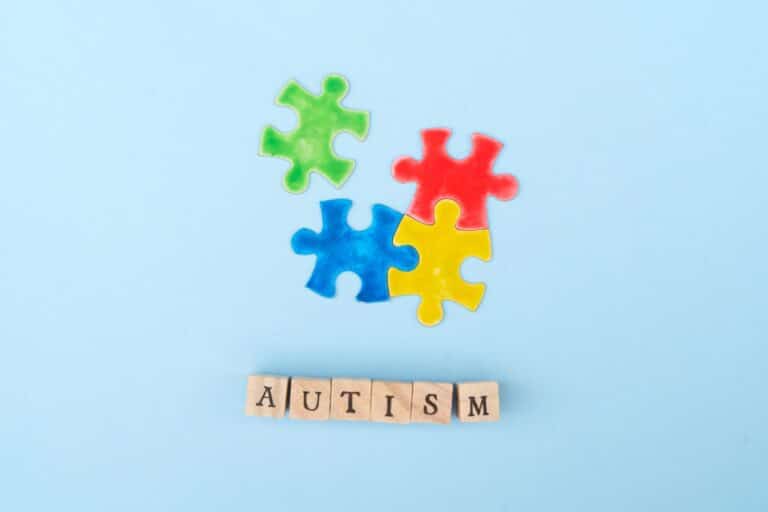Understanding dissociative identity disorder (DID) requires an individual to first consider what identity is. Identity is a complex, multidimensional concept that is an amalgamation of the various factors that define who a person is. Over time, people establish this definition of themselves via additive experiences, memories, and values. No matter how minor, each of these contributes to building and shaping one becomes. While generally stable as a whole, identity is in constant flux on a microscopic scale.
Some sense of identity is typically established by early adulthood, although this varies from person to person. Searching for identity can be particularly difficult during critical stages of development, like adolescence or significant life changes. One might experiment with different potential templates of self while searching for the one that fits them best. This might even result in confusion about who a person is or wants to be. This is a normal process of development and self-discovery and rediscovery.
Understanding Dissociative Identity Disorder
Conversely, in some, identity can be much more problematic. Previously known as multiple personality disorder, DID is a dissociative mental health disorder. It has intermittently garnered mainstream attention in the media over the years. Many of these portrayals have inaccurately represented the condition or promoted harmful stigma, such as in M. Night Shyamalan’s movie Split. Such negative depictions of a disease can contribute to misconceptions and misinformation.
According to the American Psychiatric Association’s Diagnostic and Statistical Manual, Fifth Edition (DSM-V), DID disrupts identity. Instead of the general stability with slight flux experienced by most, DID causes a fractured and unstable state of identity. As a result, these individuals have two or more distinct personalities rather than a singular personality. Their identity being disrupted into multiple separate identities causes discontinuity in their sense of self and autonomy. This is accompanied by alterations in some or all of the following:
- Affect
- Behavior
- Consciousness
- Memory
- Perception
- Cognition
- Sensory-motor function
These alterations cause recurrent gaps in recalling everyday occurrences, crucial personal information, or traumatic events beyond normal forgetting. For these symptoms to be considered DID, they must cause clinically significant distress in some area of one’s life, such as social or occupational. They also cannot be regarded as a normal part of a broadly accepted cultural or religious practice. According to Psychiatric Clinics of North America’s 2006 publication on “Culture-Bound Dissociation”, there are many such examples within indigenous African cultures that would not meet the criteria for diagnosing DID.
Etiology
Like most dissociative disorders, it is believed that the development of DID is most often based on past trauma. Exposure to such trauma can be highly formative of one’s identity during critical developmental periods, such as childhood and adolescence. Experiencing persistent periods of ambivalence, neglect, or abuse can trigger escape mechanisms for survival, such as denial. In extreme denial, some individuals might experience the trauma happening to someone else rather than themselves. This someone else is often one or more of the developed dissociative identities formed as a coping mechanism.
Recognizing Dissociative Identity Disorder
Dissociative identity disorder is a rare psychiatric diagnosis in approximately 1.5% of the global population. Patients with dissociative identity disorder often present with symptoms that can be difficult to differentiate from other psychiatric conditions. It is often misdiagnosed as schizophrenia or borderline personality disorder.
Although individuals are likely aware of their symptoms, a lack of insight can make identifying them difficult. They might experience periods they cannot account for, also known as “blackouts.” This might present as meeting people that they know, but not recognizing them. Both auditory and visual hallucinations are common with DID. Others may notice these symptoms, but the diagnosis can be difficult even for experts in the field.
Normal Variations in Personality
The term “multiple personalities” is commonly misused to describe normal variations in personality or mood. People are complex, and that complexity can be misconstrued or mislabeled by others. Immediately attributing those variations to a mental health disorder can be harmful.
Most people maintain a single consistent internal identity throughout their day. However, depending on their situation or environment, different aspects of that identity might be more pronounced while others are dampened. Some people might present a slightly varied version of themselves at home compared to school or work. These situational identities are still part of the same singular identity rather than separate identities seen in DID.
Importance of Awareness
Awareness of this condition and familiarity with its presentation is essential for an individual to avoid a delayed diagnosis. Without treatment, the prognosis is poor. Many patients have several emergency presentations, including self-harm, suicide attempts, and substance abuse. The sooner a person is diagnosed and begins treatment, the better they will be able to address their underlying trauma and learn the necessary skills to cope and thrive moving forward.
Dissociative identity disorder (DID) is a complex dissociative mental health disorder often misunderstood and misdiagnosed. Understanding what the disease is and its etiology can help correct these misconceptions. Recognizing dissociative identity disorder is essential to avoid missed and delayed diagnoses. This condition can be challenging to manage, but there are resources available. At Southern California Sunrise Recovery Center, we aim to provide clarity on this complex disorder. Helping our clients with a timely diagnosis and treatment to minimize the detrimental effects of this condition is our utmost concern. If you or a loved one are experiencing symptoms that might be consistent with DID, call us at (949) 284-7325 to learn more.






